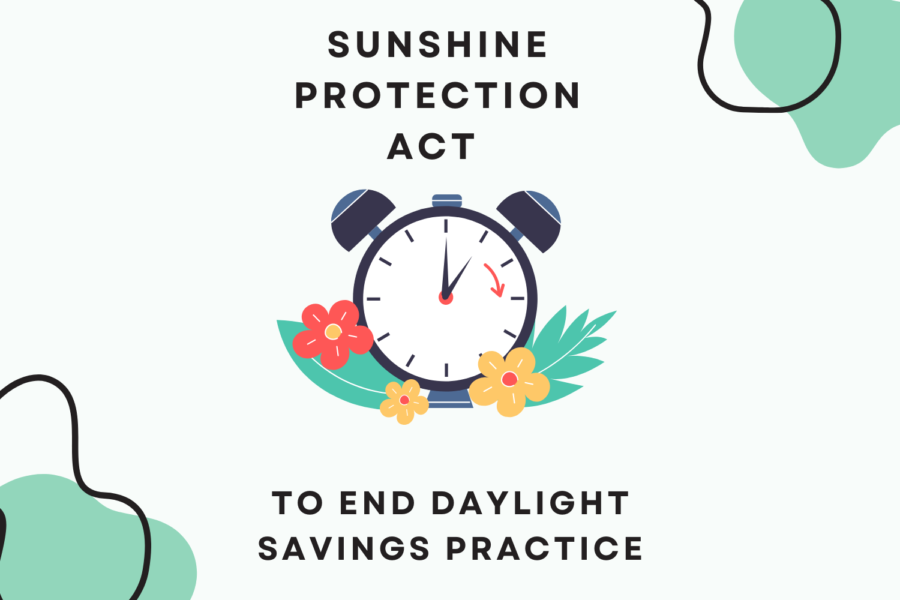Senate passes bill to make daylight savings permanent
The Drowsy Senate meets the morning of the springtime change. After almost no argument against passing, the Senate unanimously voted for the bill, passing it to Senate.
An era ended on March 15 when the Senate unanimously passed the Sunshine Protection Act to end the practice of daylight savings, making this current springtime change permanent.
After losing an hour of sleep over many schools’ spring break, the United States Senate members returned to the Capitol groggy and on a mission to put a stop to (what they believed) the frustrating clock-change.
“The bill’s fate in the House was not immediately clear, but if the legislation were to pass there and be signed by President Biden, it would take effect in Nov. 2023,” the New York Times states.
No record was taken on the vote to mark the passage of the bill, there were speeches made for the Congressional Record to the extent of Senators bashing the ritual of clock changing and blaming the time change for many instances.
The senators urged the House to pass the bill to move it along to settle the disagreements and nationwide resent toward changing the clocks twice a year. A spokesman for Speaker Nancy Pelosi cited Rep. Frank Pallone Jr., Democrat of New Jersey’s post on Twitter saying that he wants to “end the silliness of the current system soon.”
The senators’ claims prove factual and researched, stating that daylight savings will make citizens more productive and overall happier. In a recognized study in 2017 in Denmark, psychiatric databases were analyzed over the span of 1995 to 2012. Scientists discovered a correlation between time change and an increase in depressive episodes. In addition, mornings aid people in waking up more proficiently, while dark nights allow for efficient melatonin production.
Industries consisting of retail and leisure dispute that a later sunset with therefore more sun during the day allows their consumers more time to spend money in their industries. Some even argue that roads will be safer, and crime will reduce due to more light in the evenings.
Senators also brought up there are already several states who enacted legislation to put a halt to daylight savings. These states include Arizona and Hawaii and United States territories of American Samoa, Guam, Northern Mariana Islands, Puerto Rico and the U.S. Virgin Islands.
With no warning nor debate, on Tuesday, March 15, the Senate unanimously passed legislation to ditch the biannual springing forward and falling back that has become increasingly despised by Americans. The Bill is currently in the House and its final decision is not clear until it is signed by President Biden. If fully passed, it would take effect in Nov. 2023.

